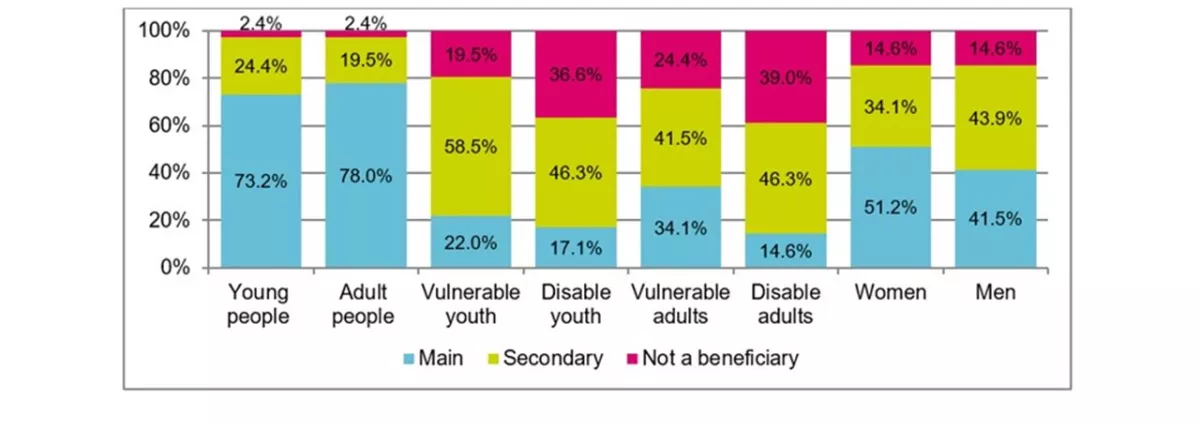CSOs' participation in different forms of policy dialogue is a critical factor in meeting the needs of youth. Governments can benefit from the constructive participation of CSOs in developing, implementing, and monitoring national youth strategies at all levels. The political will of public authorities to engage is crucial, and the EU encourages actions to progress in this direction.
In 2020 and 2021, ETF implemented a study on the Role of the CSOs in HCD. It covered six countries - Albania, Jordan, Serbia, Tajikistan, Ukraine, and Uzbekistan. CSOs' dynamics and resilience in the context of the pandemic crisis, focusing on skills development through non-formal and informal learning of young and adult people; employment-related services; awareness-raising and advocacy on skills development and employment; were the focus of the study.
Albania Country Report indicates that the CSOs focused their activities on skills development for delivering and strengthening non-formal learning to young people and on advocacy activities. In Jordan, the ETF study found that 93% of the organisations named young people their primary beneficiaries. In addition, 50 % of CSOs reported disabled and vulnerable youth as the primary beneficiaries of their services. In Serbia, the Law on a budget provides for the allocation of funds for CSOs' activities in youth employment. Related to the primary beneficiary groups, most CSOs work with youth (60%), women (46%) and vulnerable youth (46%). In Ukraine, delivering non-formal learning is the primary type of activity of the surveyed CSOs. More than 73 % of CSOs provide non-formal learning to young people. Tajikistan Country Report indicates that youth is the primary beneficiary of about 50 % of the CSOs. Among the major funding, 70% stated donor funds, 31% self-financing, and 37% were private donations or governmental funds. In Uzbekistan, the law "On social partnership" and legal acts are prepared to strengthen the capacity of the CSOs to help youth, women, and unemployed people obtain better skills.
While there are country-specific findings, there are also commonalities. For example, across all countries, the ETF study concludes that the CSOs' engagement and potential for the future revealed that the pandemic provided challenges and an unusual opportunity for these actors to contribute to HCD and be more engaged with youth.
In summary, when it comes to the CSOs and youth, the ETF study found that there are many different types of CSOs' engagement in functional relationships with the public sector in HCD and policy implementation. The CSOs' key advantage is that they can respond quickly and flexibly to emerging challenges and niche areas relevant to youth policies. They play an essential role in acting as a bridge between the public sector and target communities, and often they are in the driving seat for social change.
The voice and actions of CSOs in non-formal and informal learning support young people to access lifelong learning and contribute to reaching a quality education for all. This has a significant positive impact on implementing the Sustainable Development Goals.

Indeed CSO engagement is crucial in different format of policy dialogue. CSO can play effective role for implementing, and observing national youth strategies at all levels. it's interesting to hear and introducing with study on the Role of the CSOs in Human Capital Development on the example six countries. It would be good initiative and opportunity to conduct the study in Georgia and explore real cases and picture.
Please log in or sign up to comment.